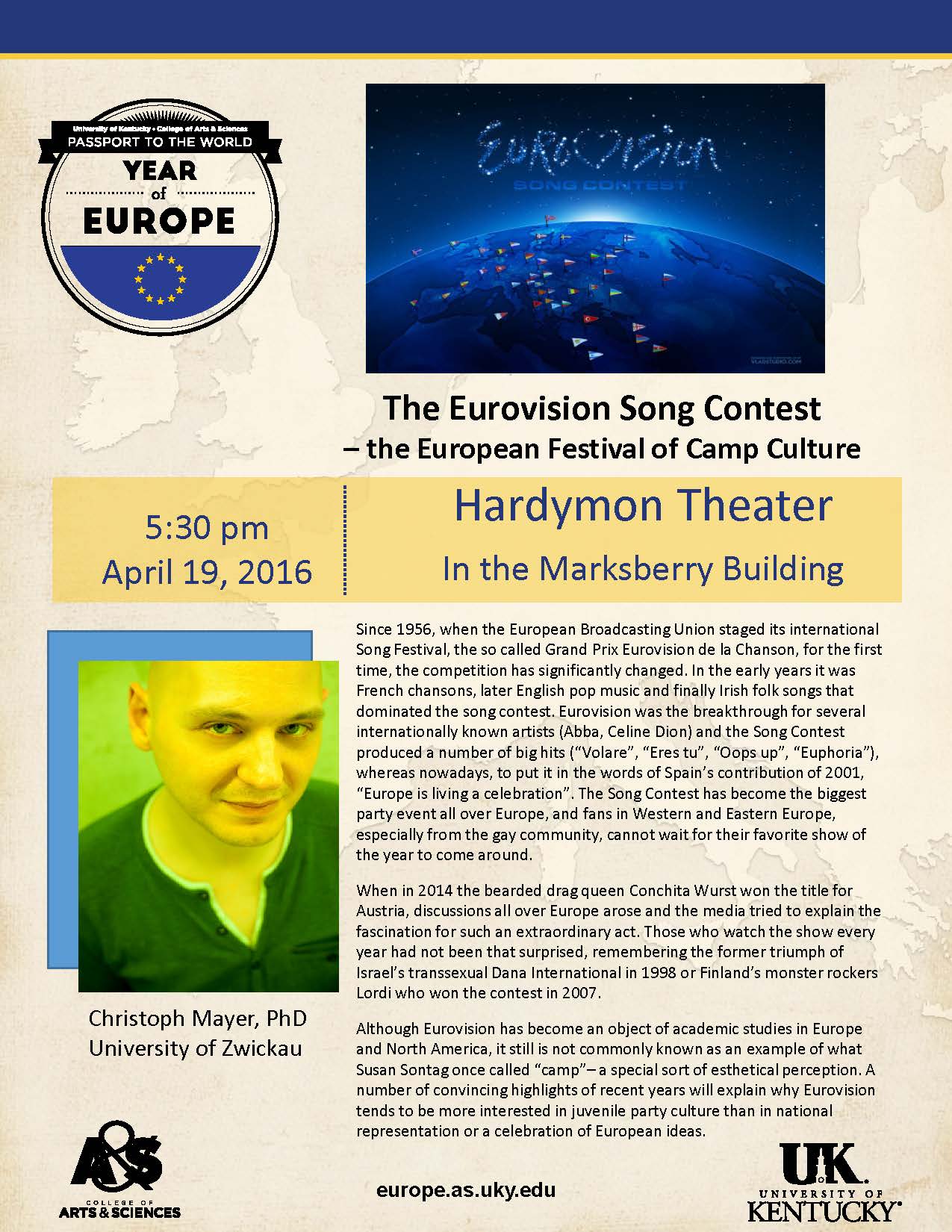Year of Europe
Interactive Discussion: "The Teatro del Barrio of Lavapiés and the Cultural Economy of Post-Crisis Madrid"
Interactive Discussion: "The Teatro del Barrio of Lavapiés and the Cultural Economy of Post-Crisis Madrid"
Europe in Our Lives: Faculty Panel Discussion
Europe in Our Lives: Faculty Panel Discussion
Year of Europe Kick Off Lecture: AUSTERITY PROFESSIONALS AND SHADOW CITIZENS IN EUROPE
"Tell me again about Europe and her pains,
Who's tortured by the drought, who by the rains.
Glut me with floods where only the swine can row" -- William Empson
Europe is in crisis, deep economic and political crisis. With many member-state economies now tottering on zero-growth meltdown, professional politicians and economists persist with austerity drives and devise ideological covers for the continued plundering of public resources. Frack capitalism power-drills into the public realm, extorting value from erstwhile common property. A para-state of technocrats and Euro-bureaucrats, meanwhile, governs, "sending us rain and sunshine from above" (Marx). One big problem such professional representation poses for ordinary Europeans -- for people I shall call amateur shadow citizens -- is PARTICIPATION. Shadow citizens are disenfranchised Euro-citizens who express a citizenship waiting in the wings, a potential solidarity haunting the mainstream, floating across frontiers and through designated checkpoints. This lecture investigates the dialectic between professional austerians and shadow citizens, doing so while attempting to put a fresh spin on Henri Lefebvre's "late" ideal that the right to the city is "nothing less than a new conception of revolutionary citizenship."
Andy Merrifield, Supernumerary Fellow in Human Geography, Murray Edwards College, University of Cambridge
Andy Merrifield is a writer, social theorist, and urban geographer. He has taught human geography at the University of Southampton, King's College, London, and Clark University in Massachusetts, and has been a visiting scholar at Johns Hopkins University, Baltimore, the University of California, Los Angeles (UCLA), the University of Sao Paulo, Brazil, the University of Manchester (as Leverhulme Visiting Professor), and the City University of New York CUNY). For a number of years, he was a freelance writer living in France, where he wrote biographies of Guy Debord and Henri Lefebvre, as well as a bestselling "existential" travelogue, The Wisdom of Donkeys. He is author of nine books; his articles, essays, and reviews have appeared in the Times, The Nation, Harper's Magazine, New Left Review, Adbusters, Harvard Design Magazine, Radical Philosophy, Monthly Review, and Dissent, amongst others.
Year of Europe Kick Off Lecture: AUSTERITY PROFESSIONALS AND SHADOW CITIZENS IN EUROPE
"Tell me again about Europe and her pains,
Who's tortured by the drought, who by the rains.
Glut me with floods where only the swine can row" -- William Empson
Europe is in crisis, deep economic and political crisis. With many member-state economies now tottering on zero-growth meltdown, professional politicians and economists persist with austerity drives and devise ideological covers for the continued plundering of public resources. Frack capitalism power-drills into the public realm, extorting value from erstwhile common property. A para-state of technocrats and Euro-bureaucrats, meanwhile, governs, "sending us rain and sunshine from above" (Marx). One big problem such professional representation poses for ordinary Europeans -- for people I shall call amateur shadow citizens -- is PARTICIPATION. Shadow citizens are disenfranchised Euro-citizens who express a citizenship waiting in the wings, a potential solidarity haunting the mainstream, floating across frontiers and through designated checkpoints. This lecture investigates the dialectic between professional austerians and shadow citizens, doing so while attempting to put a fresh spin on Henri Lefebvre's "late" ideal that the right to the city is "nothing less than a new conception of revolutionary citizenship."
Andy Merrifield, Supernumerary Fellow in Human Geography, Murray Edwards College, University of Cambridge
Andy Merrifield is a writer, social theorist, and urban geographer. He has taught human geography at the University of Southampton, King's College, London, and Clark University in Massachusetts, and has been a visiting scholar at Johns Hopkins University, Baltimore, the University of California, Los Angeles (UCLA), the University of Sao Paulo, Brazil, the University of Manchester (as Leverhulme Visiting Professor), and the City University of New York CUNY). For a number of years, he was a freelance writer living in France, where he wrote biographies of Guy Debord and Henri Lefebvre, as well as a bestselling "existential" travelogue, The Wisdom of Donkeys. He is author of nine books; his articles, essays, and reviews have appeared in the Times, The Nation, Harper's Magazine, New Left Review, Adbusters, Harvard Design Magazine, Radical Philosophy, Monthly Review, and Dissent, amongst others.
Eurovision Song Contest: A European Festival of Camp Culture

Eurovision Song Contest: A European Festival of Camp Culture

